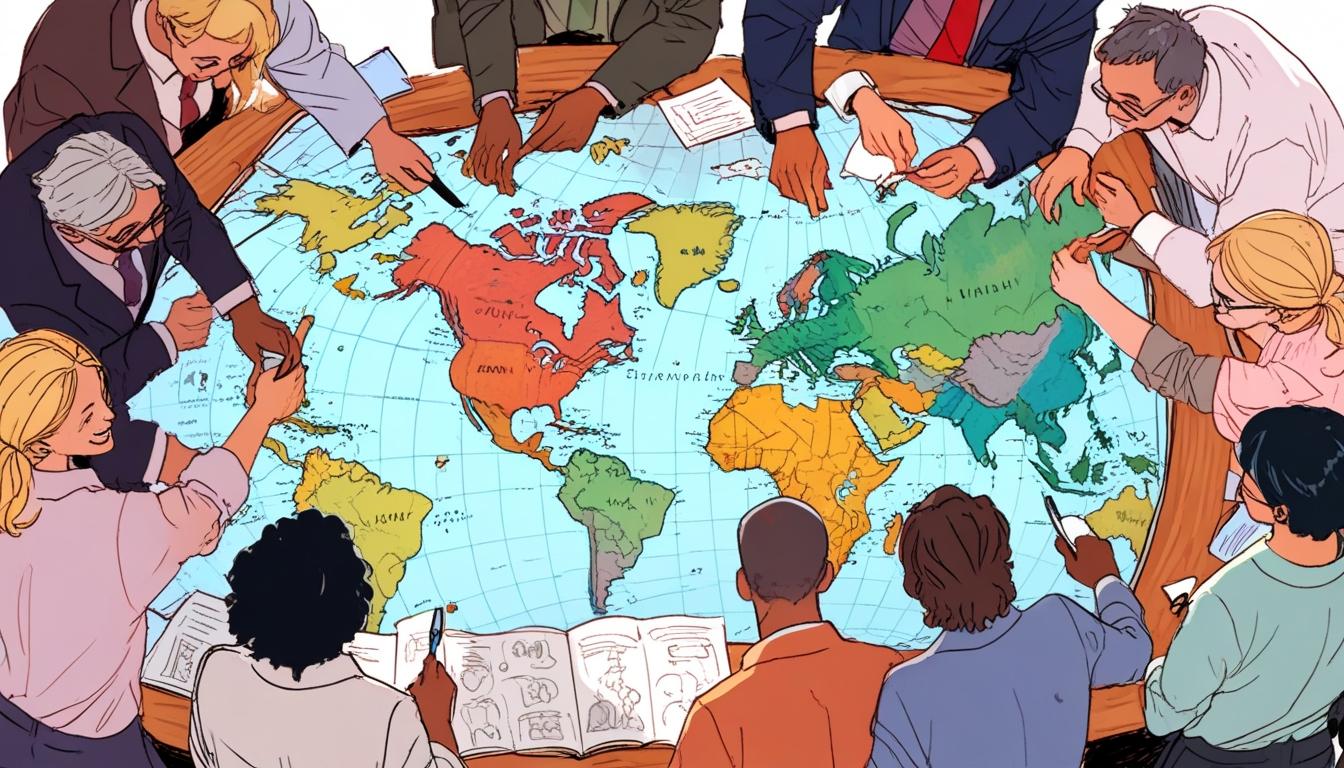Gates Cambridge scholars are making significant contributions across a wide spectrum of economic fields, including development economics, climate economics, political economy, workers' rights, taxation, and the circular economy. Their work spans academia, international organisations, consultancy, and entrepreneurship, highlighting diverse approaches and innovative solutions to global economic challenges.
In the arena of economic development, many scholars have held influential roles in leading international institutions. Charles Amo-Yartey, a 2002 scholar, began his career at the International Monetary Fund (IMF) while completing his PhD on capital markets in emerging economies. Having worked extensively in Africa and the Western Hemisphere, Amo-Yartey authored Caribbean Renewal: Tackling Fiscal and Debt Challenges, a detailed examination of high debt burdens in Caribbean nations and proposed reforms for fiscal consolidation and economic resilience. He emphasises that effective financial progress requires a conducive political environment.
Similarly, Luca di Mario, a 2009 Gates Cambridge scholar, brings an engineering perspective to sustainable development through his work with the Asian Development Bank (ADB). Di Mario’s projects focus on transforming waste management in South Asia, including leading the establishment of a waste-to-energy system in the Maldives amid the COVID-19 pandemic. He highlighted the importance of innovative, inclusive, and environmentally sound financial solutions that address vulnerabilities exacerbated by climate change.
Other scholars contributing to international development include Dima Krayem, who has combined fieldwork and policy roles in contexts such as Lebanon’s Syrian refugee crisis. Krayem transitioned from working with the World Bank to a PhD focused on the complexities of refugee presence, which has enriched her ongoing role as Senior Economist at the World Bank in Lebanon.
Latin American development issues have also attracted scholarly focus. Cassandra Sweet, a 2004 alumna, researches political and economic development, specialising in innovation systems and trade. Her projects include examining pharmaceutical systems and intellectual property amid the COVID-19 pandemic. In Africa, Queen Nworisara-Quinn, a 2010 scholar, has expanded her work from infrastructure and private sector development at the African Development Bank to co-founding Kupanda Capital, an investment entity fostering sustainable and collaborative business growth across the continent.
Women’s economic empowerment is a prominent theme among several scholars. Tara Cookson, a 2011 scholar and Canada Research Chair at the University of British Columbia, merges academic work with activism through her feminist research consultancy Ladysmith. Her ongoing book project explores how datafication is transforming feminist development work, stressing that metrics and data collection must be carefully considered to avoid unintended consequences. Cookson said of her work: “Data can be a tool for feminist change, but it is not the only tool needed. It is important to recognise its limitations... The metrics you choose to measure really matter.”
Fellow 2016 scholar Sharmila Parmanand at the London School of Economics investigates the politics surrounding anti-trafficking and sex work in the Philippines. Her forthcoming book challenges government approaches that view sex workers solely as victims, advocating for policies centred on social justice and political agency for sex workers.
Climate economics has been a critical field for Gates Cambridge scholars as well. Kamiar Mohaddes, a 2005 scholar and Associate Professor at Cambridge Judge Business School, has conducted influential research demonstrating that all countries face substantial economic risks from continued emissions. His work informed a 2021 letter by US Congress members urging the Federal Reserve to incorporate climate risks into monetary policy. Together with fellow scholar Ramit Debnath, Mohaddes co-founded the climaTRACES lab, which focuses on quantifying the economic impacts of climate change and biodiversity loss, aiming to enhance policy and business strategies.
Political and economic intersections feature prominently in scholars’ work, with Todd Tucker (2012) directing Industrial Policy and Trade at the Roosevelt Institute while contributing to US government consultations on trade and supply chain resilience. Reid Lidow, a 2014 scholar with experience as an executive advisor and political candidate, co-authored Permacrisis: A Plan to Fix a Fractured World alongside prominent economists, outlining transformational approaches to economic management and governance challenges.
Research on workers’ rights and employment conditions is also represented by Agnieszka Piasna, a senior researcher at the European Trade Union Institute. Her work on job quality and working time, alongside advisory roles to European agencies, addresses labour policies within evolving economic frameworks.
Tax research, especially concerning evasion and avoidance, is addressed by Andrea Binder, a 2014 scholar and research leader at the Otto Suhr Institute in Berlin. Her 2023 book Offshore Finance and State Power explores how offshore financial services influence state authority beyond conventional understandings of tax planning or money laundering.
Innovative and alternative economic models are pursued by scholars such as Rashad Abbasov, a 2002 alum and circular economy entrepreneur. Abbasov leads Circular Route, an AI-based platform supporting sustainable second-hand markets, building on his earlier work founding Scrapo, a global plastic recycling marketplace. His efforts have garnered awards from the US Department of Energy and Texas Environmental Leadership.
Paolo Savaget, a 2015 scholar and Associate Professor at the University of Oxford with expertise spanning engineering and business, has gained recognition for his book Four Workarounds. It explores how resource-constrained organisations achieve success through unconventional problem-solving, challenging perceptions of corporate superiority. Savaget remarked: “I get very annoyed with the conventional wisdom that large companies from rich countries are inherently superior... My book shows how the business world can learn from the innovative wit and practical ingenuity of these ‘ugly ducklings’.”
The extensive reach and impact of Gates Cambridge scholars in economics reflect a rich interplay of interdisciplinary knowledge, practical application, and global engagement. Their work continues to influence policy, research, and practice worldwide across diverse economic landscapes.
Source: Noah Wire Services
